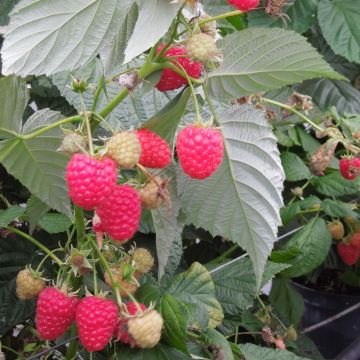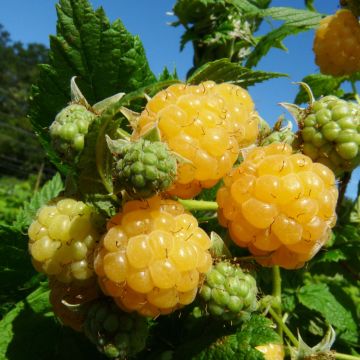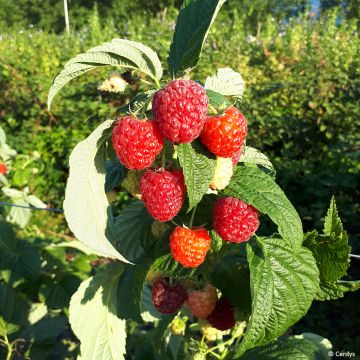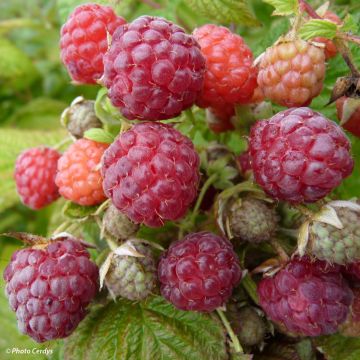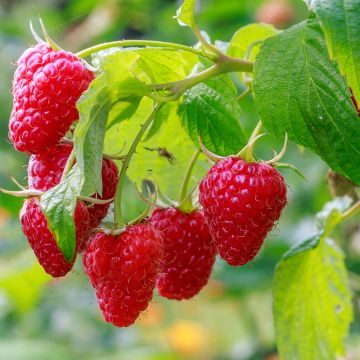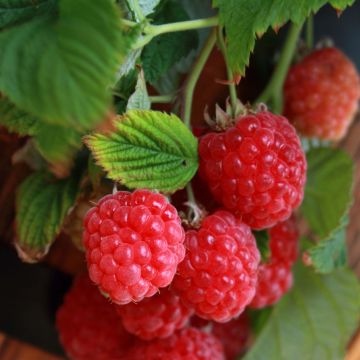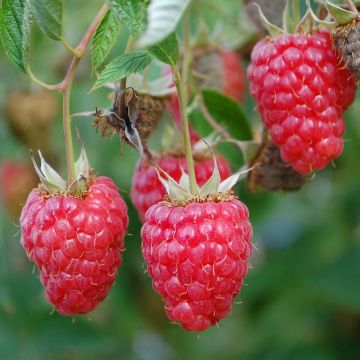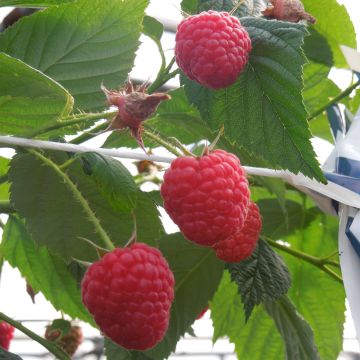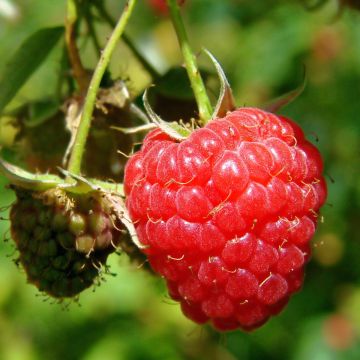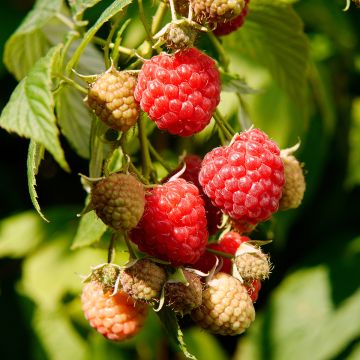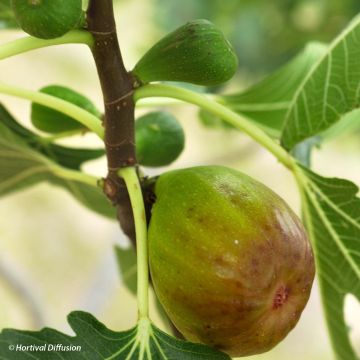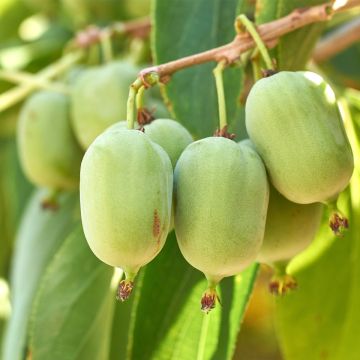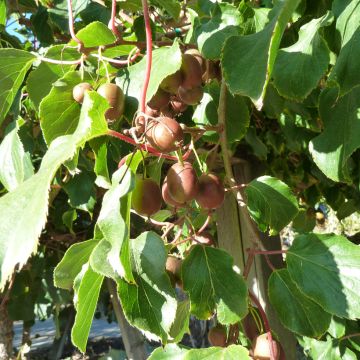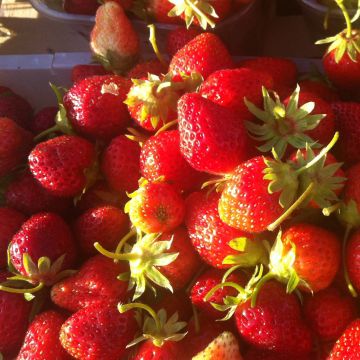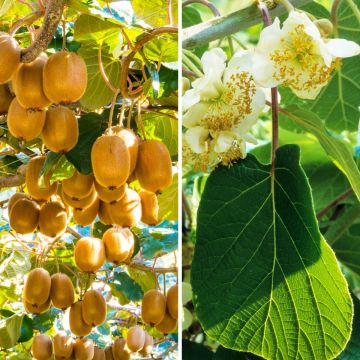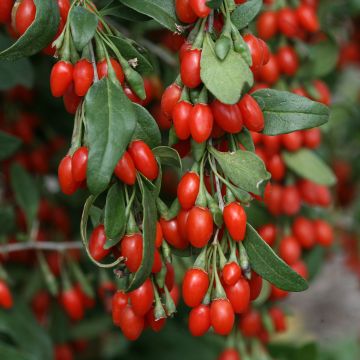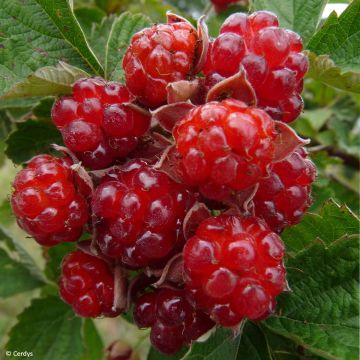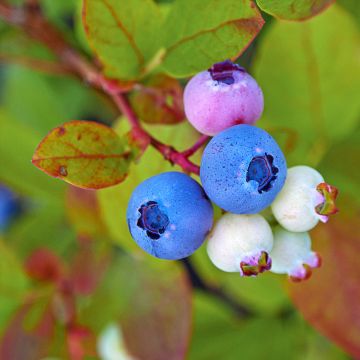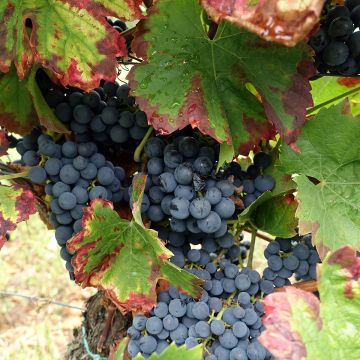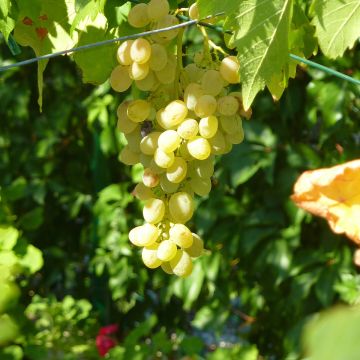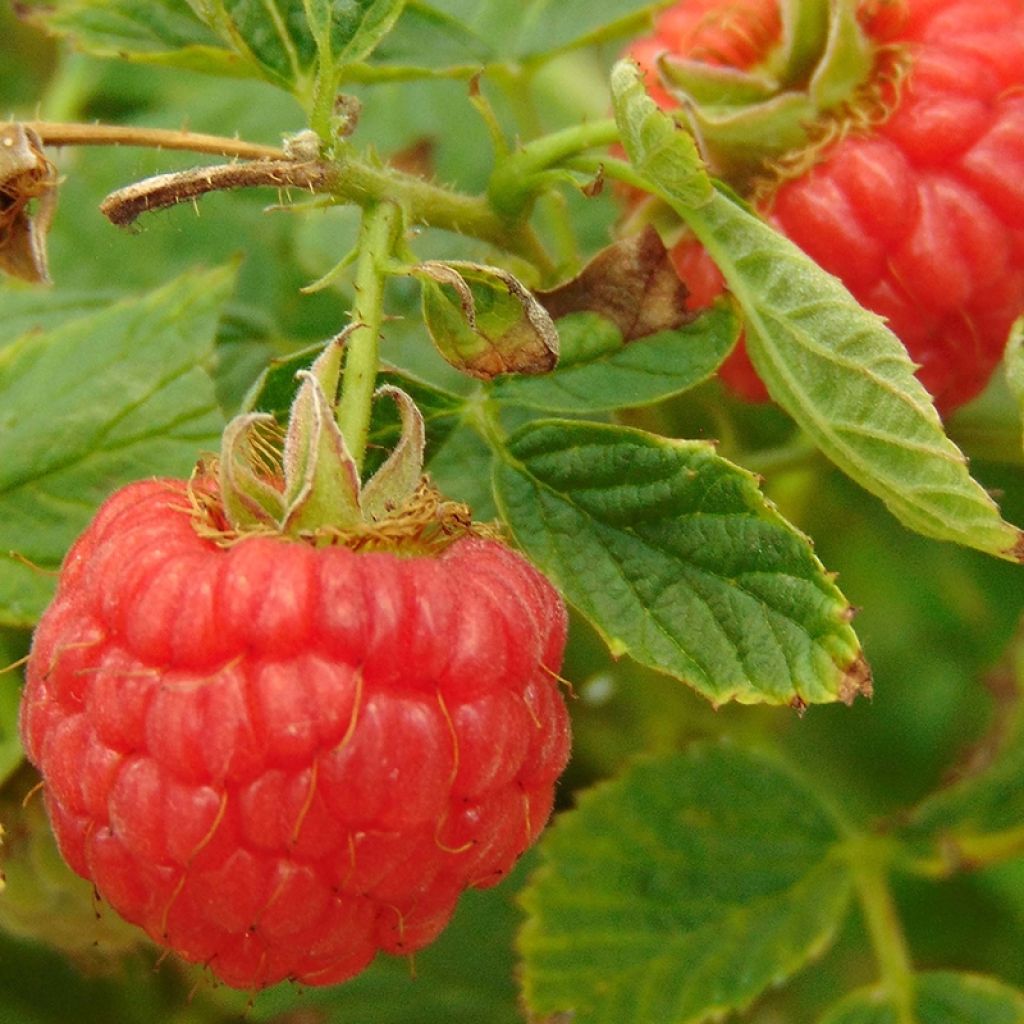

Framboisier nain Little Sweet Sister Bio
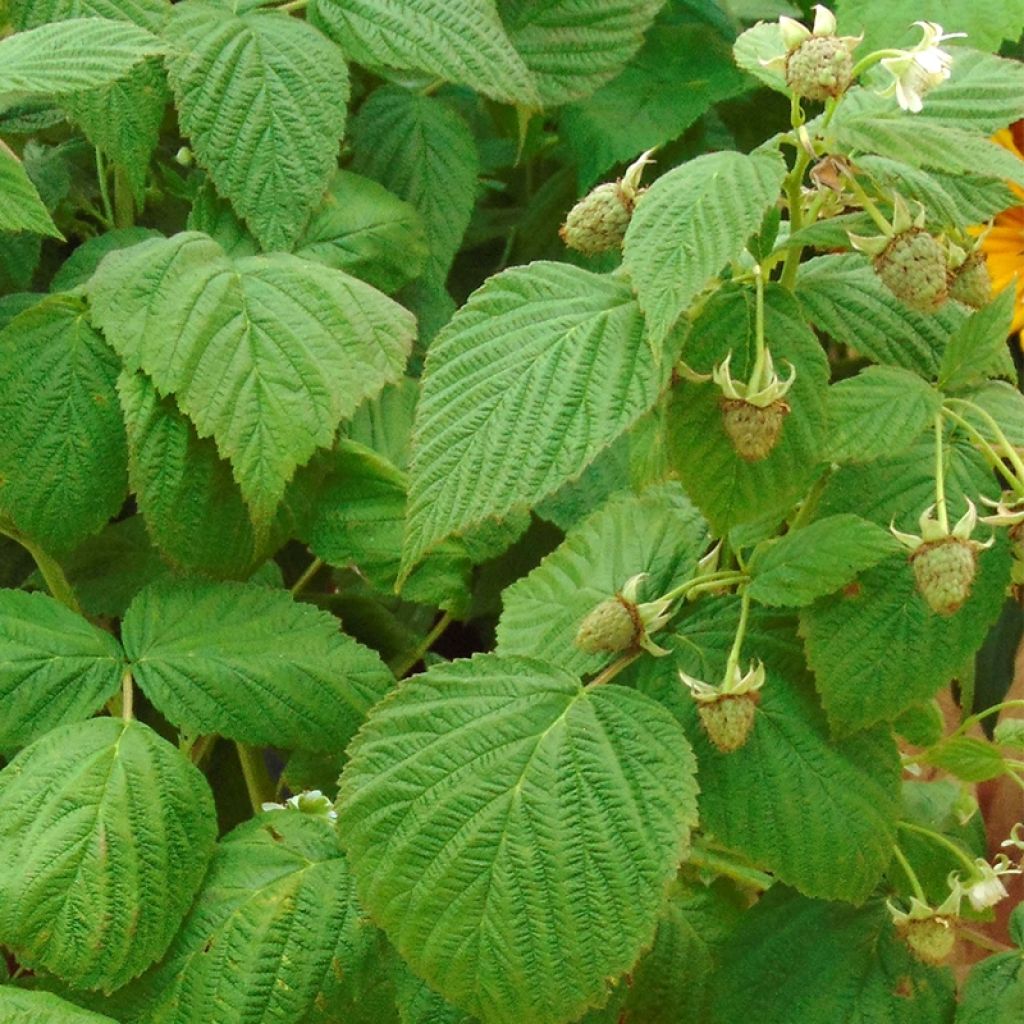

Framboisier nain Little Sweet Sister Bio
Organic Raspberry Little Sweet Sister- Rubus idaeus
Rubus idaeus Little Sweet Sister Bio
Raspberry, Red Raspberry, European Raspberry
This item cannot be shipped to the selected country
Delivery charge from €5.90
Delivery to Corse prohibited
More information
Schedule delivery date,
and select date in basket
This plant carries a 6 months recovery warranty
More information
We guarantee the quality of our plants for a full growing cycle, and will replace at our expense any plant that fails to recover under normal climatic and planting conditions.
From €5.90 for pickup delivery and €6.90 for home delivery
Express home delivery from €8.90.
Delivery to Corse prohibited: UE law prohibits the import of this plant from mainland France to Corse as part of the fight against Xylella fastidiosa. Please accept our sincere apologies.
More information
Description
The Raspberry Bush 'Little Sweet Sister' from Organic Agriculture is a dwarf variety, ideal for planting in large pots on balconies and patios. The plant, whose branches are devoid of thorns, produces rounded fruits of good size without being particularly large. Their flavour is quite representative of raspberries in general, but it is rather sweet than acidic and their dark red color is mouthwatering. This variety is the earliest of the so-called 'autumn' raspberries: after a small harvest in June, the second crop occurs from mid-July until autumn.
The Raspberry Bush (Rubus idaeus in Latin) belongs to the rose family, like strawberries, blackberries, and wild roses. The wild raspberry bush is native to Europe and temperate Asia, where it grows in cool climates alongside elderberry, beech, or mountain ash, especially in mountain undergrowth, but also in plains.
As for horticultural varieties, there are remontant ones, which produce once in June and then a second time in autumn, usually from August to October, and non-remontant varieties, which have a abundant harvest around June and July.
The Organic Little Sweet Sister Raspberry Bush is a deciduous bush with upright stems, reaching a height of 1m (3ft). The stems or canes are biennial, each one having the peculiarity of dying after fruiting. Each year, new suckers emerge from its roots, new canes that are thornless in this variety. The Raspberry Bush has green leaves on the top, white-green and downy on the underside. They are deciduous and turn yellow in autumn before falling. The flowering is very nectar-rich. The white flowers are small (1 to 2 cm (0.5 to 1in) in diameter), grouped in small clusters of 10 to 12, and appear in April-May. The fruits are formed by small agglomerated drupes, easy to detach when ripe.
To fully enjoy their flavor, raspberries should be consumed shortly after picking, as they do not keep well. If you have a abundant harvest, consider making coulis, sorbets, pies, or jams. You can also freeze them.
The production reaches its normal level in the third year after planting. A plant can produce fruits for several years, around 10 years.
Report an error about the product description
Organic Raspberry Little Sweet Sister- Rubus idaeus in pictures
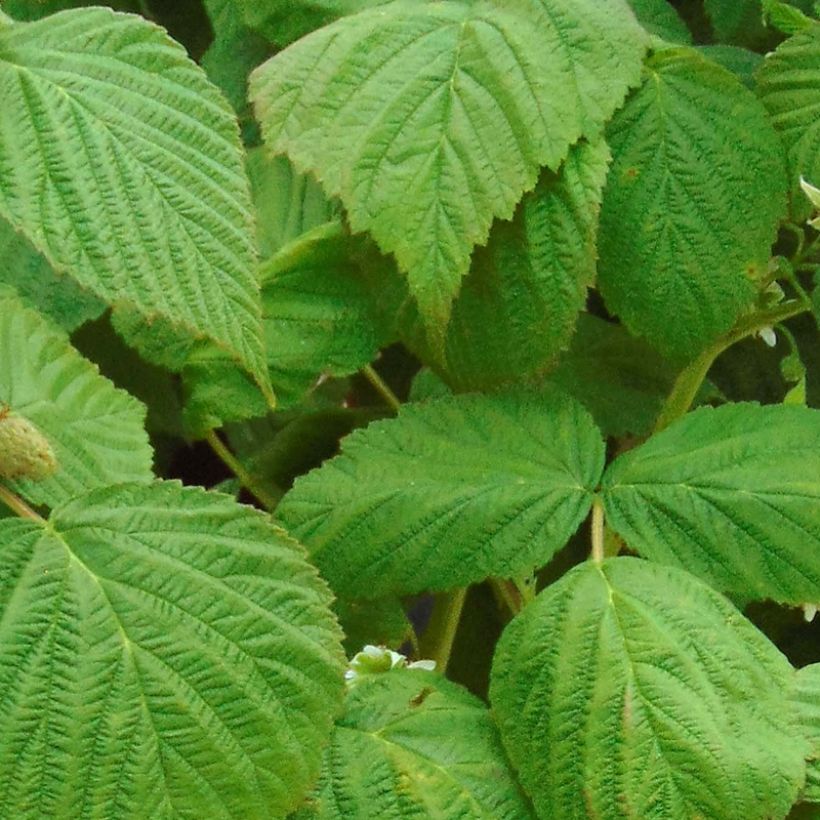

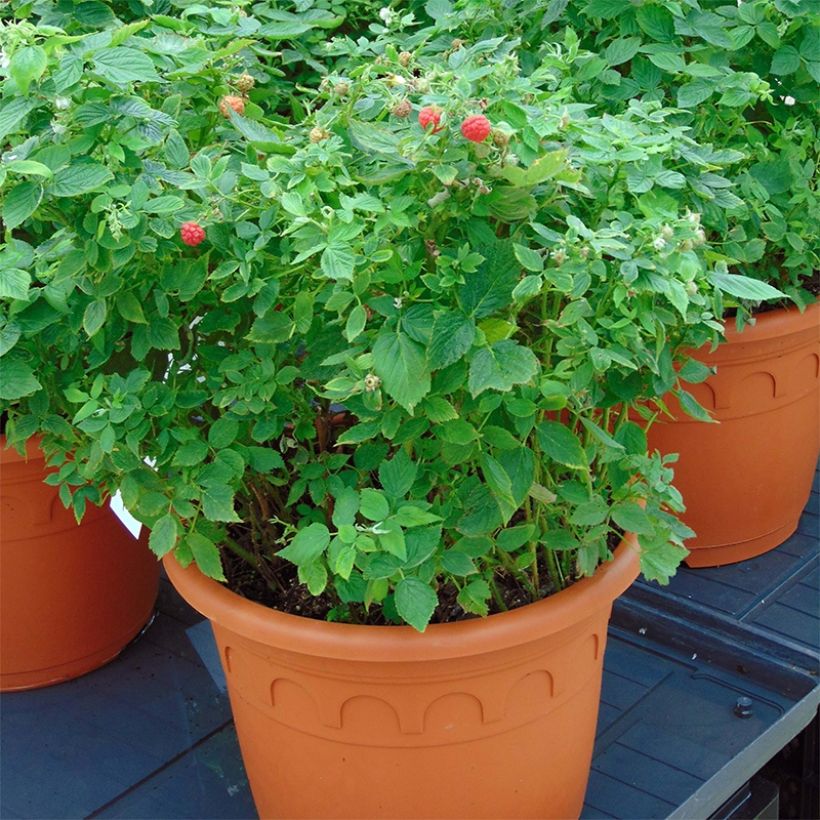

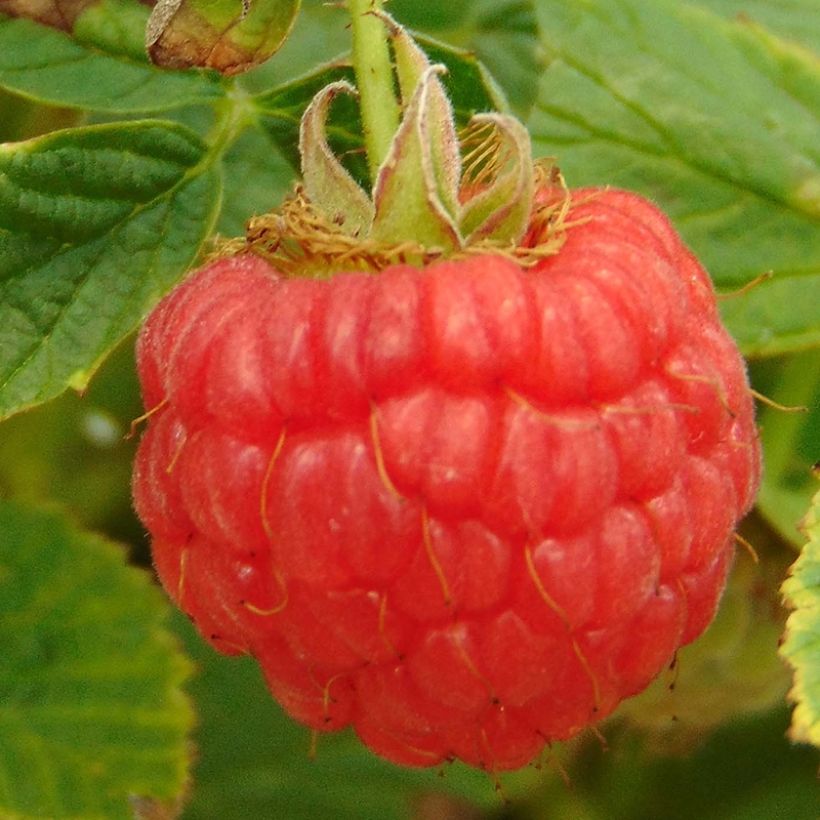

Plant habit
Fruit
Flowering
Foliage
Botanical data
Rubus
idaeus
Little Sweet Sister Bio
Rosaceae
Raspberry, Red Raspberry, European Raspberry
Cultivar or hybrid
Other Raspberry plants
Planting and care
The Little Sweet Sister Organic Raspberry prefers humus-rich, rich soils that retain moisture, even in summer, without too much limestone. Plant it from October to March in ordinary soil enriched with compost and well-rotted manure. The 'Little Sweet Sister' Organic Raspberry can be planted directly in the ground or in a pot.
Plant every 50 cm (20in) in rows spaced 1.20 m (4ft) apart. During planting, the collar should be level with the ground.
Regularly water to promote root development in the first year of planting. During periods of high heat or prolonged drought, provide additional water. Weed the surface especially at the beginning of planting and apply mulch to retain moisture in summer.
For container planting, place gravel or clay pellets at the bottom of the pot to facilitate drainage. Fill the pot with a mixture of soil, compost, and potting soil.
Raspberries can be susceptible to various diseases if the growing conditions are not optimal (raspberry anthracnose, raspberry rust, powdery mildew, gray mold during rainy periods, or Botrytis). The damage observed in cultivation is due to poor climatic conditions, especially during cold springs that allow micro-fungi present in the soil to infest the vegetation. To protect the plants, it is recommended to feed the raspberries with organic fertilizers that promote the multiplication of anaerobic bacteria in the soil, which strengthens the soil's ability to stimulate the plants' immune system. Raspberries can also be attacked by certain parasites such as raspberry worms, the larvae of a small beetle that lodges in the fruits without causing significant damage.
Raspberries easily multiply through suckers that grow near the base: remove them and replant them in another part of the garden if desired.
Beneficial Association: Plant in the company of marigolds and forget-me-nots, pests and diseases will be less common.
Planting period
Intended location
Care
This item has not been reviewed yet - be the first to leave a review about it.
Berries
Haven't found what you were looking for?
Hardiness is the lowest winter temperature a plant can endure without suffering serious damage or even dying. However, hardiness is affected by location (a sheltered area, such as a patio), protection (winter cover) and soil type (hardiness is improved by well-drained soil).

Photo Sharing Terms & Conditions
In order to encourage gardeners to interact and share their experiences, Promesse de fleurs offers various media enabling content to be uploaded onto its Site - in particular via the ‘Photo sharing’ module.
The User agrees to refrain from:
- Posting any content that is illegal, prejudicial, insulting, racist, inciteful to hatred, revisionist, contrary to public decency, that infringes on privacy or on the privacy rights of third parties, in particular the publicity rights of persons and goods, intellectual property rights, or the right to privacy.
- Submitting content on behalf of a third party;
- Impersonate the identity of a third party and/or publish any personal information about a third party;
In general, the User undertakes to refrain from any unethical behaviour.
All Content (in particular text, comments, files, images, photos, videos, creative works, etc.), which may be subject to property or intellectual property rights, image or other private rights, shall remain the property of the User, subject to the limited rights granted by the terms of the licence granted by Promesse de fleurs as stated below. Users are at liberty to publish or not to publish such Content on the Site, notably via the ‘Photo Sharing’ facility, and accept that this Content shall be made public and freely accessible, notably on the Internet.
Users further acknowledge, undertake to have ,and guarantee that they hold all necessary rights and permissions to publish such material on the Site, in particular with regard to the legislation in force pertaining to any privacy, property, intellectual property, image, or contractual rights, or rights of any other nature. By publishing such Content on the Site, Users acknowledge accepting full liability as publishers of the Content within the meaning of the law, and grant Promesse de fleurs, free of charge, an inclusive, worldwide licence for the said Content for the entire duration of its publication, including all reproduction, representation, up/downloading, displaying, performing, transmission, and storage rights.
Users also grant permission for their name to be linked to the Content and accept that this link may not always be made available.
By engaging in posting material, Users consent to their Content becoming automatically accessible on the Internet, in particular on other sites and/or blogs and/or web pages of the Promesse de fleurs site, including in particular social pages and the Promesse de fleurs catalogue.
Users may secure the removal of entrusted content free of charge by issuing a simple request via our contact form.
The flowering period indicated on our website applies to countries and regions located in USDA zone 8 (France, the United Kingdom, Ireland, the Netherlands, etc.)
It will vary according to where you live:
- In zones 9 to 10 (Italy, Spain, Greece, etc.), flowering will occur about 2 to 4 weeks earlier.
- In zones 6 to 7 (Germany, Poland, Slovenia, and lower mountainous regions), flowering will be delayed by 2 to 3 weeks.
- In zone 5 (Central Europe, Scandinavia), blooming will be delayed by 3 to 5 weeks.
In temperate climates, pruning of spring-flowering shrubs (forsythia, spireas, etc.) should be done just after flowering.
Pruning of summer-flowering shrubs (Indian Lilac, Perovskia, etc.) can be done in winter or spring.
In cold regions as well as with frost-sensitive plants, avoid pruning too early when severe frosts may still occur.
The planting period indicated on our website applies to countries and regions located in USDA zone 8 (France, United Kingdom, Ireland, Netherlands).
It will vary according to where you live:
- In Mediterranean zones (Marseille, Madrid, Milan, etc.), autumn and winter are the best planting periods.
- In continental zones (Strasbourg, Munich, Vienna, etc.), delay planting by 2 to 3 weeks in spring and bring it forward by 2 to 4 weeks in autumn.
- In mountainous regions (the Alps, Pyrenees, Carpathians, etc.), it is best to plant in late spring (May-June) or late summer (August-September).
The harvesting period indicated on our website applies to countries and regions in USDA zone 8 (France, England, Ireland, the Netherlands).
In colder areas (Scandinavia, Poland, Austria...) fruit and vegetable harvests are likely to be delayed by 3-4 weeks.
In warmer areas (Italy, Spain, Greece, etc.), harvesting will probably take place earlier, depending on weather conditions.
The sowing periods indicated on our website apply to countries and regions within USDA Zone 8 (France, UK, Ireland, Netherlands).
In colder areas (Scandinavia, Poland, Austria...), delay any outdoor sowing by 3-4 weeks, or sow under glass.
In warmer climes (Italy, Spain, Greece, etc.), bring outdoor sowing forward by a few weeks.

































